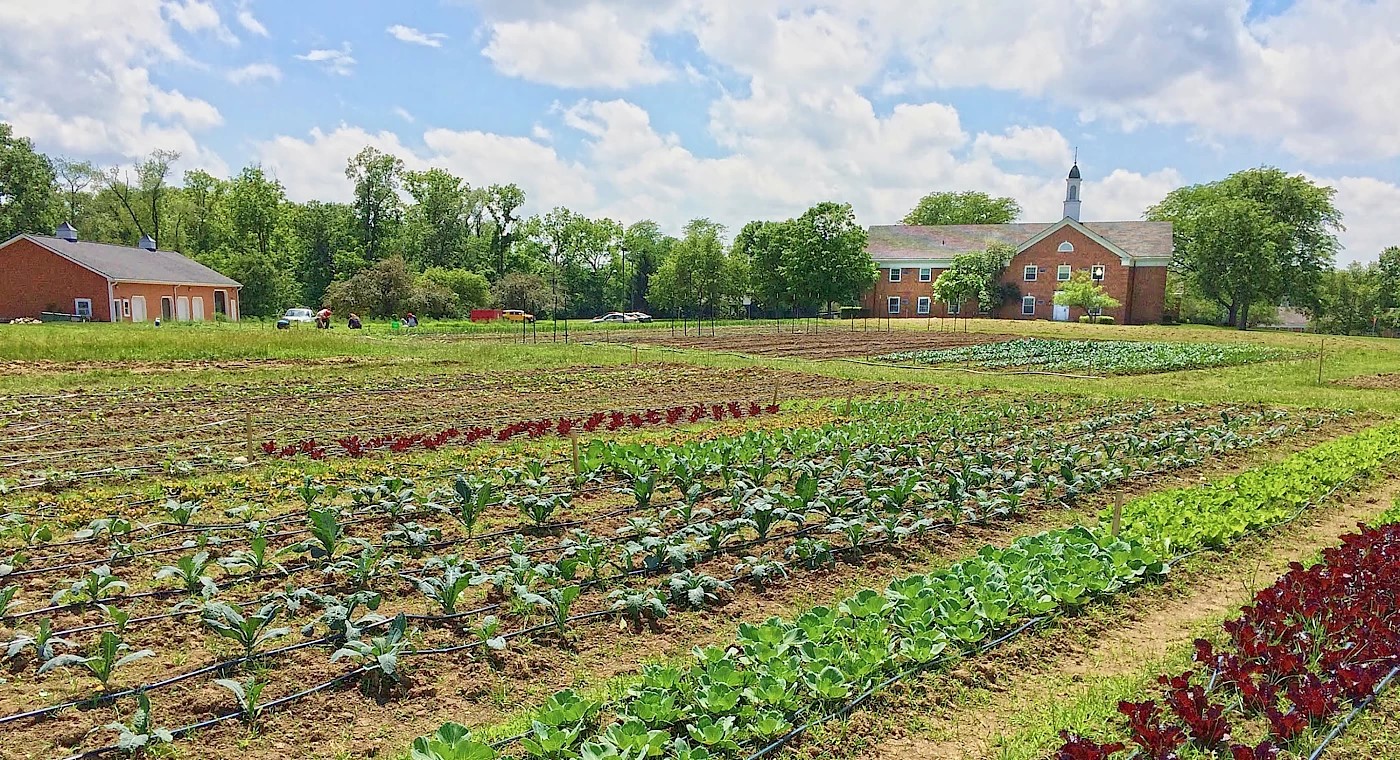A Farm & A Seminary’s New Identity
A Farm & A Seminary’s New Identity
By Ray Marcano
A seminary in Ohio has combined its theological teachings with environmental concerns to feed the body while nourishing the soul.
The Methodist Theological School of Ohio created Seminary Hill Farm in 2013 and, at the same time, adopted the term Ecotheology to describe how its unique farming program dovetails with scripture.
“It’s not always been seen, in the environmental justice world, that church can be helpful,” Jay Rundell, the school’s president, said.
The school’s teachings have a historically strong social and ecological justice bent, yet students saw a disconnect between pedagogy and practice. They would eat processed foods in the cafeteria and see staff mowing lawns, examples of “all the things they were learning were hard on the world,” Rundell said. Students “called us out on our hypocrisy,” he added.
MTSO met a prospective student who ended up not enrolling. But the student ran a farm-to-table operation that intrigued Rundell. He was so excited he decided to take the idea of starting a farm to his board.
That’s where the bumps in the road started.
During a board meeting, a long-time member asked a simple question: Why does a seminary need a farm?
“It dawned on me that in all my excitement about doing this, I had missed really connecting [the idea] to the educational program,” Rundell said. “I learned right there I needed to tie it together to be credible.”
By the next board meeting some four months later, board members had begun to shift. They noted that family members, friends, and neighbors were all proponents of sustainable farming. Rundell got the go-ahead to start the farm and, with it, a new course of study MTSO has dubbed Ecotheology.
But then, Seminary Hill ran into more conflict. Through grants and partnerships, the farm had the resources to be successful –tractors, trucks, paid staff and interns, and, most importantly, free MTSO land. With no overhead, Seminary Hill could sell goods cheaper at area markets– the same markets local farmers depended on for income.
“What I thought was giving back to the world felt like an unfair marketplace to people who were in this work,” Rundell said. “That’s a lesson I had to learn in a hurry, to work with the larger ecosystem of people doing this work.”
As a result, Seminary Hill put more emphasis on education and less on profit. The farm has 10 acres but rarely cultivates more than five. (Rundell doesn’t envision it getting any bigger).
Seminary Hill receives occasional funding from The Ohio State University, which Rundell believes is the “only example of a land grant university funding a denominational seminary.”
Other partnerships include AmeriCorps, which provides interns, and the Culinary Institute of America, which uses Seminary Hill as a placement site for aspiring chefs.
The farm builds revenue by selling some of its produce to restaurants and by writing grants. Since the farm isn’t a profit center, Seminary Hill uses excess funds to help the seminary’s community outreach goals. For example, the farm helps stock a food bank and participates in a food and wellness program for underserved and food-insecure communities.
According to its website, the farm grows seven different kinds of peppers, six different types of winter squash, three different types of tomatoes, cucumbers, onions, potatoes, herbs, and more. Seminary Hill has a Community Supported Agriculture (CSA) that buys a share of what the farm produces.
Seminary Hill has grown so much and become such a part of MTSO that people search for the term “Seminary Hill” more than they search for “MTSO,” which is the common acronym for the seminary.
“We realized there was more interest in what some felt (was) an appendage or a side business, when all of a sudden that became why people were looking for us,” Rundell said. “And I think that’s when we started to realize this isn’t going to go away. This is a part of who we are.”
This story is part of Lake Institute’s story collection, the Faithful Generosity Story Shelf, which highlights congregations and other religious organizations who have sought to use their assets and resources in creative—and sometimes surprising—ways as an expression of faithful giving.
Each entry in our Story Shelf is short enough to be read and discussed during a committee meeting or other group gathering. Our hope is that these accessible vignettes will spark new questions, conversation, and imagination among clergy and laity about what might be possible with the funds, buildings, land, and other resources in their care. If you know a story that should be included in the Story Shelf, suggest it here.
Subscribe
Insights is a bi-weekly e-newsletter for the religious community and fundraisers of faith-based organizations that provides:
- Reflections on important developments in the field of faith and giving
- Recommended books, studies and articles
- Upcoming Lake Institute events

